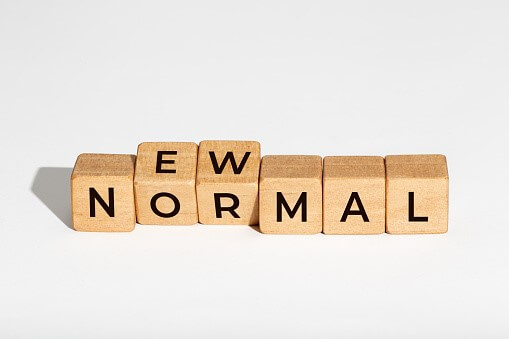We are now “celebrating” two years since the pandemic lockdown. As we look to build a powerful and effective work environment post the pandemic, we need to realize that the hybrid work model is here to stay. Two-thirds of employees want to work from home and also from the office. There have been many successes and proof of concept that it indeed does work. But, team members want to do it their way, with their DNA. Many employees and leaders alike have had a lot of freedom these past two years. In order to make an effective new model we will need: Disciplined, Normalized, Autonomy.
When we think of DNA some very scientific words surface for those who know those words. But for the vast majority of us DNA refers to the fundamental and distinctive characteristics or qualities that we have that are unique and unchangeable. Our DNA carries our genetic information.
Self-Discipline is the Best Discipline

Adults want minimal rules, but those must include consistent guidelines. Take the time to address what worked in these past two years and what didn’t. Don’t be shy. Get it out in the open and talk about how any behavior did not support group or interactive work outputs. Employees should not be working in isolation, nor should they be doing whatever they like whenever they like.
One of those guidelines might be consistent work times. If what you had before was optimal, then this should be your standard practice. We work from 8 to 5, or 7 to 4. Meaning that if I e-mail you at a regular work time, you will be available and able to collaborate with me, solve a problem together or address an issue.
Make hiring self-disciplined people a criteria within your team. “Disciplined people are better at structuring their lives in a way that does not require heroic willpower and self-control,” states James Clear author of Atomic Habits.
He goes on to say, “perseverance, grit, and willpower are essential to success, but the way to improve these qualities is not by wishing you were a more disciplined person, but by creating a more disciplined environment.” I am disciplined to know that I write best at home, and I generate and take care of e-mails and business development best from the office. Margo Anderson of UP Michigan Works says, “we work 40 hours a week, no more, but no less either.” When you see initiative and self-discipline in action, fan the flame. What gets done still matters.
Make it Normal

Eighteen months seems to be the witching time when people who are out of sync with their normal needs start to get “hangry” as we have come to know it. We are more antsy, antagonized, agitated, annoyed, angry, and anxious. I have seen it in myself these last few months. During this time, my husband had a recurrence of stage four throat cancer with an aggressive surgery that removed his larynx. He no longer speaks like you and me. But he does communicate, and together we have worked through to a new normal.
The way in which we communicate now will be permanent. There will be no getting back to normal. When this happens, look for systems that will help you manage, because systems are best for progress.
I would suggest reading Managing Transitions, by William Bridges. It is all about managing the human side of change. One of the things we must do is name the losses and realize we are not able to go back to that again, then expedite establishing your new normal. Throughout this time, companies have found creative ways to keep their businesses strong and their employees connected. Consider the good that came from these forced changes and keep what you have learned. We need to make the desired behavior the normal behavior. But the two things that people want most are to be loved and accepted. Make this something normal that you do daily. Love yourself, accept yourself and practice that abundantly with others.
Provide Autonomy
Autonomy is the power to shape your work environment in ways that allow you to perform at your best. Highly functional autonomous environments give employees more choice. When they have more choice, they are happier, more committed, and less likely to leave. But it certainly is not a free for all. That is not autonomy, that is lack of leadership. Well run autonomous environments have leaders that provide strong, clear guidance and feedback. When there is a clear system for holding people accountable, autonomy will flourish. Nothing lowers the morale of your contributing team members more quickly than seeing inappropriate work behavior go uncorrected.

People want autonomy in four areas: Task, Time, Technique and Team. This is why knowing each of your employee’s strengths and talents is your most essential piece of intel at this time. It helps you understand the assignments that will best fit each staff member and how they will address and solve problems. It helps you understand how they are using their time no matter where they are working. It helps you understand the differing team talents that might be required for optimal results. It helps you understand their “how” or natural technique that is their DNA.
But the greatest benefit of knowing the strengths and talents of each person is that it accelerates trust. Trust is the greatest currency any team could have.
As we harness and channel the energies of our employees for a powerful and effective workplace for today and into the future, it is our DNA that will unleash the potential in each and every one of us.
